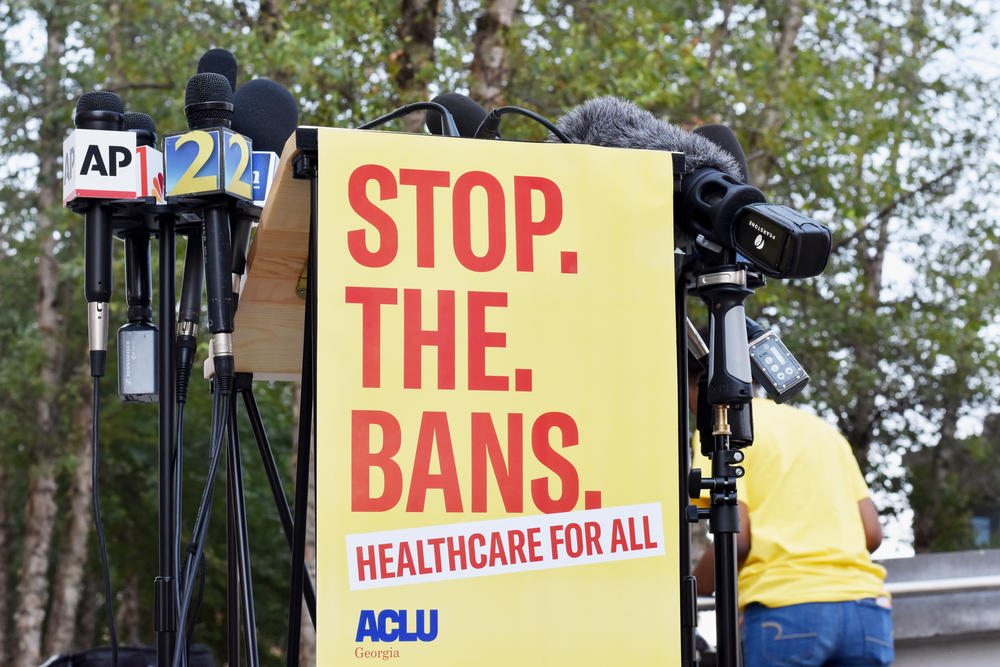Section Branding
Header Content
Read The Lawsuit Challenging Georgia's 'Heartbeat' Abortion Bill
Primary Content
A new lawsuit claims Georgia's abortion law, set to take effect Jan. 1, 2020, violates the 14th Amendment of the U.S. Constitution.
The 36-page suit, Sistersong v. Kemp, argues that the Living Infants Fairness and Equality Act "criminalizes pre-viability abortions in direct conflict with Roe v. Wade," which establishes a woman's right to an abortion until about 24 weeks into pregnancy.
Flanked by supporters wearing "Stop The Bans" shirts, representatives from the American Civil Liberties Union of Georgia, Planned Parenthood Southeast and other reproductive rights groups shared their plans to challenge the law, set to take effect Jan. 1, 2020.
Monica Simpson is the executive director of SisterSong, one of the plaintiffs in the suit. She said that in signing the bill, Gov. Brian Kemp sent a message that he was not centering the needs of marginlaized groups.
"He made it clear that he wasn't worried about all of the other numerous policy actions that we know that we need... like expanding Medicaid, or addressing our rising maternal health crisis in the state, or addressing the fact that we have over 70 counties without an OB-GYN," Simpson said.
The lawsuit says that the Georgia-based non-profit and other groups would have to divert time and resources from their main mission to helping Georgians access abortion care outside of the state if HB 481 were to take effect.
"We look forward to seeing Governor Kemp in court," Simpson ended. "And we look forward to continuing to push reproductive justice across this state and this nation..."
Sean J. Young, legal director for the ACLU of Georgia, says that there are two main counts in the suit:
"The first count says that HB 481 is unconsitutional under 50 years of Supreme Court precedent because it's a ban on abortion," Young said in an interview. "That is settled law."
Secondly, the suit alleges that language in the bill that grants "personhood" rights to a fetus or embryo is too vaguely-worded to be enforced and violates the due process clause.
"These provisions and others, as amended by the new definitions in Section 3 of H.B. 481, make it impossible for pregnant women and medical providers to know what actions are forbidden or required, and thus do not provide adequate guidance as to how they can comply with the law."
READ THE COMPLAINT:


